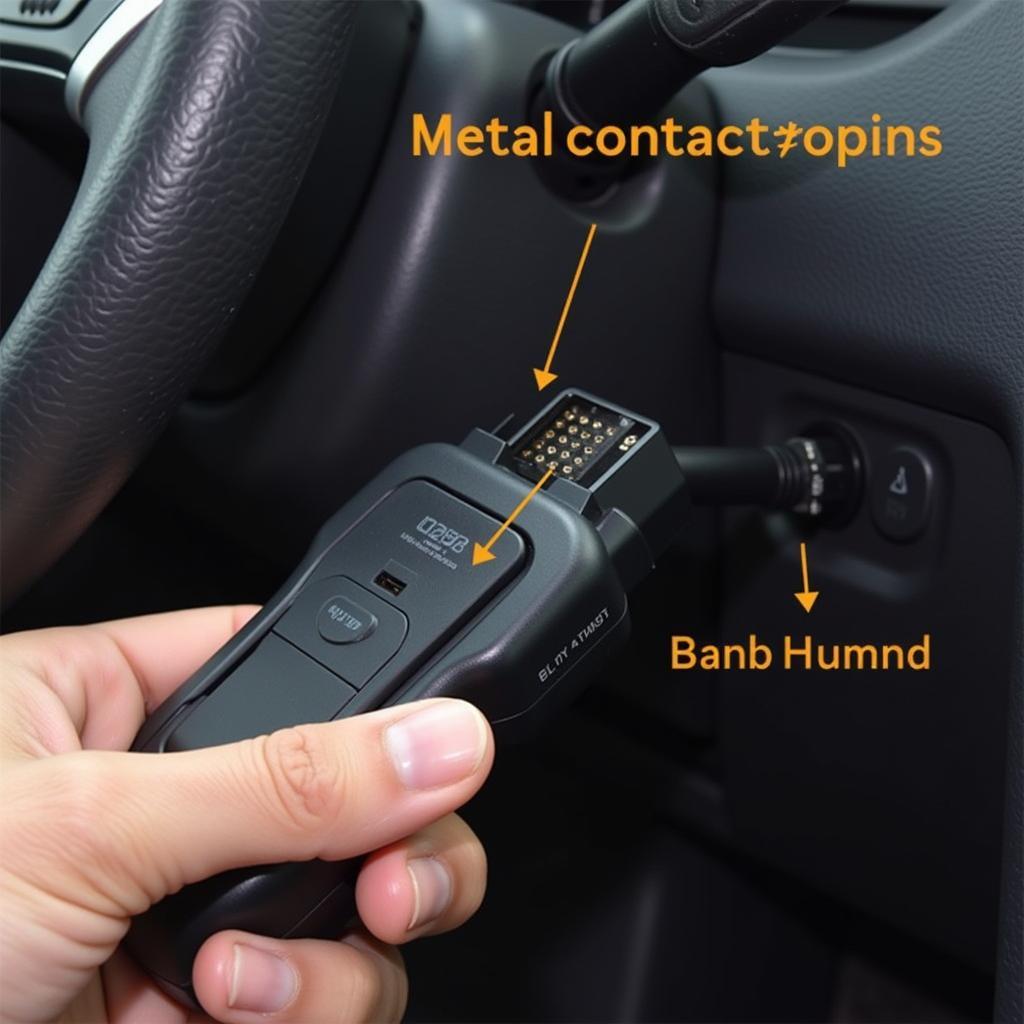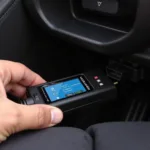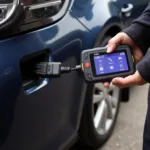The OBD2 ground, often overlooked, plays a vital role in the functionality of your vehicle’s onboard diagnostic system. It provides the essential electrical pathway for your OBD2 scanner to communicate with your car’s various electronic modules, enabling you to diagnose and troubleshoot issues effectively.
 OBD2 Ground Connection
OBD2 Ground Connection
The Importance of a Solid OBD2 Ground
A reliable ground connection is crucial for accurate data transmission between your OBD2 scanner and your car’s computer. A weak or intermittent ground can lead to:
- Inaccurate readings: A poor ground can introduce electrical noise, resulting in incorrect data being displayed on your scanner.
- Communication errors: Your scanner might struggle to establish a stable connection with your vehicle’s modules, leading to incomplete or failed scans.
- Inability to clear codes: Even after fixing a problem, a faulty ground might prevent your scanner from clearing the corresponding error codes.
“A common misconception is that the OBD2 port’s ground is solely reliant on the car’s electrical system,” says automotive electronics specialist, Dr. Emily Carter. “However, the connection between the scanner’s ground and the vehicle’s chassis is equally critical for a clean signal.”
Common Causes of OBD2 Ground Issues
Several factors can contribute to a compromised OBD2 ground:
- Loose or corroded terminals: Over time, the metal contacts within the OBD2 port and connector can become loose or corroded, hindering electrical conductivity.
- Damaged wiring: Physical damage to the wiring harness leading to the OBD2 port can disrupt the ground connection.
- Faulty ground straps: The ground straps connecting your engine and chassis to the negative terminal of your car’s battery can deteriorate, impacting the overall grounding system.
Troubleshooting OBD2 Ground Problems
Identifying and fixing OBD2 ground issues often involves these steps:
- Visual Inspection: Begin by examining the OBD2 port for any visible signs of damage, debris, or corrosion. Check the connector on your OBD2 scanner as well.
- Testing Continuity: Using a multimeter, you can test the continuity between the ground pin on your OBD2 connector and a known good ground point on your car’s chassis.
- Tightening Connections: If you encounter loose terminals, carefully tighten them using appropriate tools.
- Cleaning Contacts: Use electrical contact cleaner and a small brush to remove corrosion from the OBD2 port and connector terminals.
- Repairing or Replacing Wiring: If you suspect damaged wiring, consult a qualified mechanic for professional repair or replacement.
obd2 dongle yo check power and ground
Importance of Proper Grounding for OBD2 Scanners
Beyond accurate diagnostics, a solid OBD2 ground is essential for the well-being of your scanner:
- Protection from voltage spikes: A proper ground path provides a safe route for any voltage surges to dissipate, safeguarding your scanner from potential damage.
- Extended lifespan: By ensuring a reliable ground, you minimize the risk of electrical stress on your scanner’s circuitry, contributing to its longevity.
“Investing in a high-quality OBD2 scanner with robust grounding capabilities is crucial,” advises automotive technology expert, Michael Chen. “It ensures reliable performance and protects your investment in the long run.”
Conclusion
The OBD2 ground might seem like a minor detail, but its impact on the functionality and accuracy of your diagnostic experience is significant. Understanding its importance and knowing how to troubleshoot common issues can save you time, money, and frustration. Remember, a solid ground connection is the foundation for effective vehicle diagnostics.
FAQs
1. What pin is ground on the OBD2 port?
The ground pin on a standard 16-pin OBD2 connector is typically Pin 4. However, it’s always best to consult your vehicle’s specific wiring diagram to confirm.
2. Can a bad ground cause multiple error codes?
Yes, a faulty ground can disrupt communication with various electronic modules, potentially triggering multiple unrelated error codes.
3. Can I drive my car with a suspected OBD2 ground issue?
While driving with a suspected ground issue might not be immediately dangerous, it’s best to address the problem promptly to avoid potential diagnostic and safety concerns.
4. Do all OBD2 scanners have the same ground requirements?
Generally, all OBD2 scanners rely on a proper ground connection for optimal performance. However, some advanced scanners might have more stringent grounding requirements due to their sophisticated circuitry.
what pin is ground on the obd2
Need further assistance with OBD2 ground issues or have other car diagnostic questions? Contact our 24/7 support team via WhatsApp: +1(641)206-8880 or Email: [email protected].

